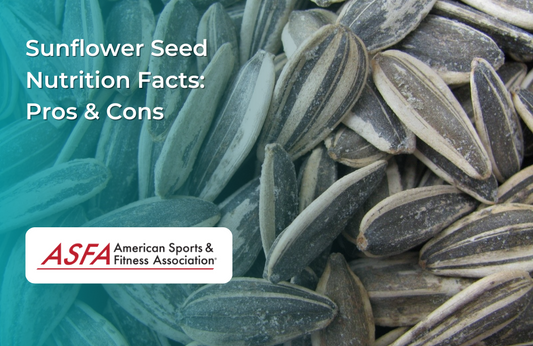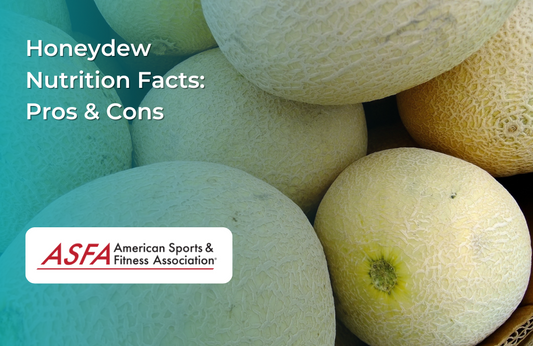Bok choy, also known as Chinese cabbage, is a low-calorie, nutrient-dense leafy green that provides fiber, vitamins, minerals, and antioxidants. It is commonly used in Asian cuisine and is praised for its versatility and health benefits. While bok choy offers numerous advantages for digestion, heart health, and immune function, it also has some dietary considerations. Understanding the pros and cons of bok choy helps in making informed dietary choices.
Bok Choy Nutrition Facts Pros Cons: Pros and Cons of Eating Bok Choy
Bok choy is low in calories and high in fiber, making it a great option for weight management and digestive health. Baby bok choy, with its milder flavor and tenderness, is a popular choice for cooking, especially in home gardens. Its fiber content supports gut health, promotes regular bowel movements, and helps regulate blood sugar levels. Bok choy is healthy, offering numerous benefits such as improved bone health and stronger immunity. However, consuming it excessively may lead to potential side effects.
This leafy green is an excellent source of vitamins and minerals, including vitamin A, vitamin C, vitamin K, calcium, and potassium, which contribute to immune support, bone strength, and cardiovascular health. The benefits of bok choy's nutritional content include supporting immune health, promoting healthy bones, and its role in disease prevention. Bok choy contains antioxidants, including beta-carotene and flavonoids, which help reduce inflammation and protect against oxidative stress.
The high water content of bok choy helps keep the body hydrated, supports skin health, and contributes to electrolyte balance. Bok choy is healthy and supports overall nutrition. It is also naturally low in carbohydrates, making it suitable for low-carb and ketogenic diets.
Bok choy is rich in folate, which plays a key role in DNA synthesis, brain function, and fetal development, making it beneficial for pregnant women.
What is Bok Choy?
Bok choy, also known as Chinese cabbage or pak choi, is a type of cruciferous vegetable that belongs to the Brassica family. This nutrient-dense green is celebrated for its mild flavor and crunchy texture, making it a versatile ingredient in many culinary creations. Rich in essential vitamins, minerals, and antioxidants, bok choy is a powerhouse of nutrients that can enhance any meal. Whether you’re adding it to stir fries, soups, or salads, bok choy’s adaptability and health benefits make it a staple in many Asian dishes.
Definition and Nutrition
Bok choy, also known as Chinese cabbage or pak choi, is a nutrient-dense cruciferous vegetable that belongs to the Brassica family. This versatile green is packed with essential vitamins, minerals, antioxidants, and other important nutrients. One cup of shredded bok choy is a powerhouse of nutrition, offering a significant amount of vitamins C and K, along with fiber, minerals, and antioxidants. Raw bok choy is particularly high in vitamin C and vitamin K, making it an excellent addition to a healthy diet. Whether you enjoy it raw or cooked, bok choy’s nutritional profile makes it a valuable component of any meal plan. Additionally, the health benefits of bok choy include cancer prevention, reducing inflammation, and supporting heart health.
Health Benefits
Cancer Prevention
Cancer bok choy contains a group of compounds called glucosinolates, which have been shown to have anti-cancer properties. These compounds, along with vitamins C and E, beta-carotene, folate, and selenium, contribute to bok choy’s cancer-fighting abilities by protecting against cell damage. Regularly consuming bok choy may help reduce the risk of developing various types of cancer, including lung, prostate, and colon cancer. By incorporating this cruciferous vegetable into your diet, you can take advantage of its natural cancer-preventive properties.
Bone Health
Bok choy is an excellent source of calcium, phosphorus, iron, magnesium, and vitamin K, making it an essential vegetable for maintaining strong bones. The iron and zinc in bok choy play crucial roles in the production and growth of collagen, while phosphorus and calcium are important for bone structure. Vitamin K helps maintain the balance of calcium in the bones, reducing the risk of bone fractures. Including bok choy in your diet can support bone health and help prevent conditions like osteoporosis.
Heart Health
Bok choy is low in calories and high in fiber, making it an excellent addition to a heart-healthy diet. The folate, potassium, vitamin C, and vitamin B-6 content in bok choy help maintain a healthy heart by preventing the buildup of homocysteine, a compound that can damage blood vessels and lead to heart problems. Additionally, the potassium, calcium, and magnesium in bok choy help decrease blood pressure naturally. By incorporating bok choy into your meals, you can support cardiovascular health and reduce the risk of heart disease.
Cons of Eating Bok Choy
Bok choy contains goitrogens, compounds that may interfere with thyroid function by reducing iodine absorption. While moderate consumption is generally safe, those with thyroid disorders should avoid excessive raw bok choy consumption. It is important to consume bok choy in moderation, especially for individuals on blood-thinning medications, and to consult a healthcare provider before incorporating it into the diet.
Since bok choy is high in vitamin K, which plays a role in blood clotting, individuals on blood-thinning medications (such as warfarin) should consult a healthcare provider before increasing their intake.
Some people may experience digestive discomfort, bloating, or gas from bok choy due to its fiber and sulfur content. Cooking bok choy can help reduce its impact on digestion.
Conventionally grown bok choy may contain pesticide residues, so washing it thoroughly or choosing organic varieties can help reduce exposure.
Bok Choy and Medication Interactions
While bok choy is a nutritious addition to your diet, it’s important to be aware of its interactions with certain medications. Bok choy is high in vitamin K, which can interfere with blood thinners like warfarin, potentially reducing their effectiveness and increasing the risk of bleeding. Additionally, compounds in bok choy may interact with diabetes medications such as metformin, affecting their efficacy. If you are taking any medications, it’s crucial to consult with your healthcare provider before consuming bok choy to ensure it fits safely into your dietary plan.
Bok Choy Allergy
Although bok choy is generally safe for most people, some individuals may experience allergic reactions. Symptoms of a bok choy allergy can include hives, itching, swelling, and difficulty breathing. If you notice any of these symptoms after consuming bok choy, seek medical attention immediately. It’s also worth noting that a bok choy allergy is often linked to allergies to other cruciferous vegetables like broccoli, cauliflower, and kale. Being aware of these potential allergies can help you manage your diet more effectively.
Preparing and Cooking Bok Choy
Preparing Bok Choy
Preparing bok choy is simple and straightforward. Start by rinsing the bok choy under cold running water to remove any dirt or debris. Separate the leaves from the stem, discarding any damaged or wilted parts. You can cut the leaves into desired sizes, such as shredded or chopped, and set them aside. The stems can be sliced or chopped and are perfect for stir-fries or soups. To store bok choy, wrap it in a damp paper towel and place it in a plastic bag in the refrigerator, where it can stay fresh for up to three days. This method helps maintain its crispness and vitamin C content, ensuring you get the most out of this nutritious vegetable.
Conclusion
Bok choy is a nutrient-rich, low-calorie vegetable that provides fiber, antioxidants, and essential vitamins and minerals, making it beneficial for immune health, digestion, and bone strength. However, its goitrogen content, potential digestive effects, and high vitamin K levels should be considered. Consuming cooked bok choy in moderation ensures maximum benefits while minimizing potential drawbacks.
FAQs
Is bok choy good for weight loss and health benefits?
Yes, bok choy is low in calories and high in fiber, making it a great addition to a weight-loss-friendly diet. As part of the cruciferous vegetables family, bok choy contains various beneficial compounds that contribute to better heart health and inflammation reduction.
Can raw bok choy be eaten?
Yes, bok choy can be eaten raw in salads or slaws, but cooking it can reduce goitrogens and improve digestibility. There are various methods to prepare bok choy, highlighting its versatility as an ingredient in cooking.
Is bok choy safe for people with thyroid issues?
In large amounts, raw bok choy contains goitrogens, which may affect thyroid function. Cooking it reduces this effect.
How does bok choy compare to spinach?
Bok choy is lower in oxalates than spinach, making it a better choice for calcium absorption, but spinach has higher iron levels.
What is the best way to cook bok choy?
Bok choy can be steamed, stir-fried, sautéed, or added to soups, preserving its nutrients while enhancing flavor. It is a versatile ingredient in various Asian-inspired dishes, especially stir fries. When preparing a stir fry, it is important to cook bok choy quickly to maintain its crispness. To store bok choy effectively, keep it in a plastic bag inside the refrigerator to maintain its freshness and vitamin C content.





